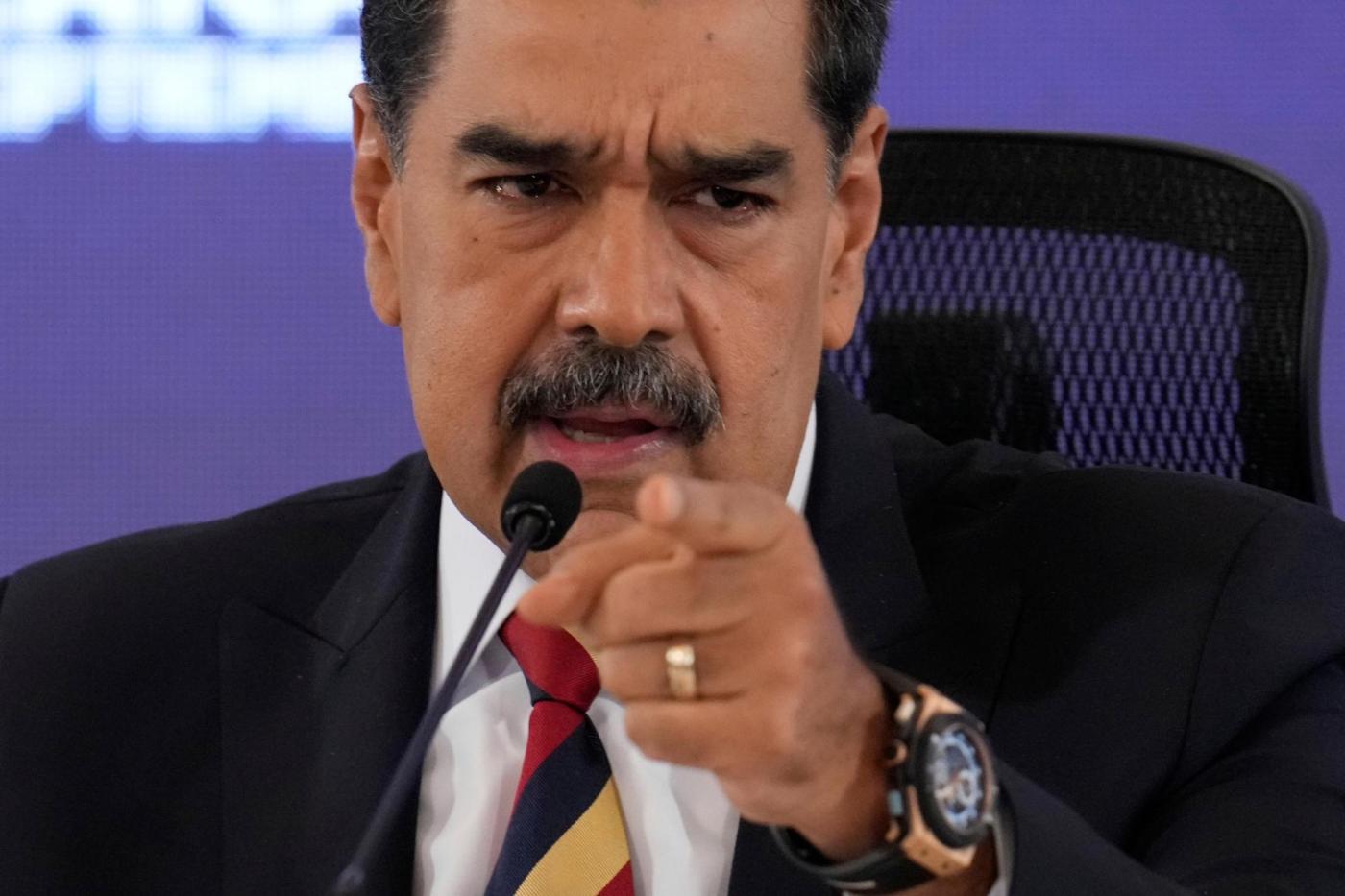
CARACAS, Venezuela (AP/REGINA GARCIA CANO and JUAN ARRAEZ) — Venezuelan President Nicolás Maduro on Monday said he “would constitutionally declare a republic in arms” if the South American country were attacked by forces that the United States government has deployed to the Caribbean.
His comments during a news conference come as the U.S. government this week is set to boost its maritime force in the waters off Venezuela to combat threats from Latin American drug cartels. The U.S. has not signaled any planned land incursion by the thousands of personnel being deployed. Still, Maduro’s government has responded by deploying troops along its coast and border with neighboring Colombia, as well as by urging Venezuelans to enlist in a civilian militia.
“In the face of this maximum military pressure, we have declared maximum preparedness for the defense of Venezuela,” Maduro said of the deployment, which he characterized as “an extravagant, unjustifiable, immoral and absolutely criminal and bloody threat.”
Related Articles
Israeli airstrike kills Houthi rebel prime minister in Yemen’s capital
Opinion: Bombing Mexico won’t help US win the war on drugs
US offers military funeral honors to Capitol rioter Ashli Babbitt
Camp Pendleton officer, wife sue military housing company over crash that killed 8-year-old son
New Navy secretary bemoans state of the fleet in San Diego speech
The U.S. Navy now has two Aegis guided-missile destroyers — the USS Gravely and the USS Jason Dunham — in the Caribbean, as well as the destroyer USS Sampson and the cruiser USS Lake Erie in the waters off Latin America. That military presence is set to expand.
Three amphibious assault ships — a force that encompasses more than 4,000 sailors and Marines — would be entering the region this week, a defense official told The Associated Press on the condition of anonymity to describe ongoing operations.
The deployment comes as President Donald Trump has pushed for using the military to thwart cartels he blames for the flow of fentanyl and other illicit drugs into U.S. communities and for perpetuating violence in some U.S. cities.
On Monday, Venezuelan Foreign Minister Yván Gil, citing a United Nations report, told his counterparts in various Latin American countries that the deployment of U.S. maritime forces is built on a “false narrative” as 87% of cocaine produced in Colombia departs through the Pacific and traffickers attempt to move only 5% of their product through Venezuela. Landlocked Bolivia and Colombia, with access to the Pacific and Caribbean, are the world’s top cocaine producers.
Gil added that the narrative “threatens the entire region” and an attack on Venezuela “would really mean a complete destabilization of the region.”
“Let us immediately demand an end to this deployment, which has no other reason than to threaten a sovereign people,” he added during a virtual meeting of members of the Community of Latin American and Caribbean States regional group.
Maduro also used his news conference to insist that he was the legitimate winner of last year’s presidential election. But ample and credible evidence has shown the contrary, prompting several countries, including the U.S., to not recognize Maduro as Venezuela’s president.
Maduro, sworn in to a third six-year term in January, added that his government maintains two lines of communication with the Trump administration, one with the State Department and another with Trump’s envoy for special missions, Richard Grenell. He called Secretary of State Marco Rubio a “warlord” pushing for action in the Caribbean to topple Venezuela’s government. U.S. military action against Venezuela would “stain” Trump’s “hands with blood,” he said.
___
Garcia Cano reported from Mexico City. Associated Press writer Konstantin Toropin in Washington contributed to this report.